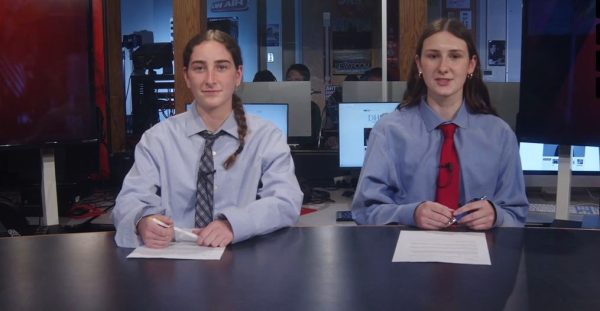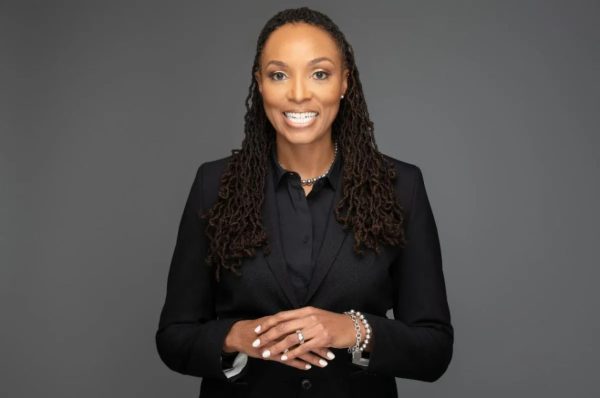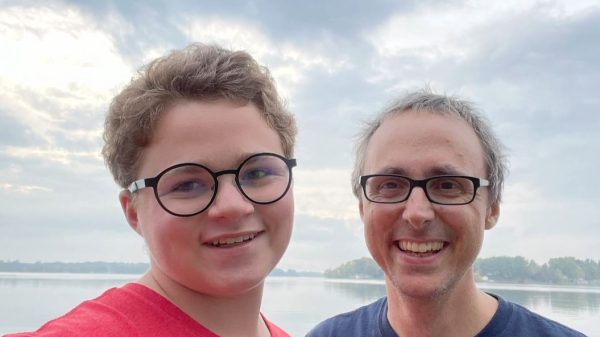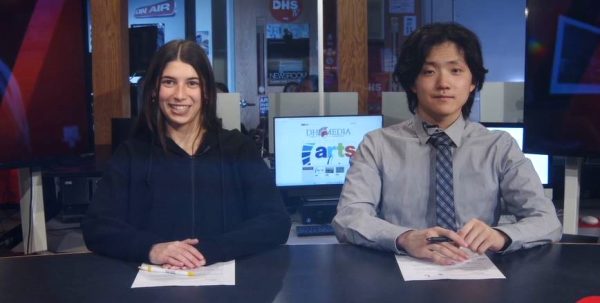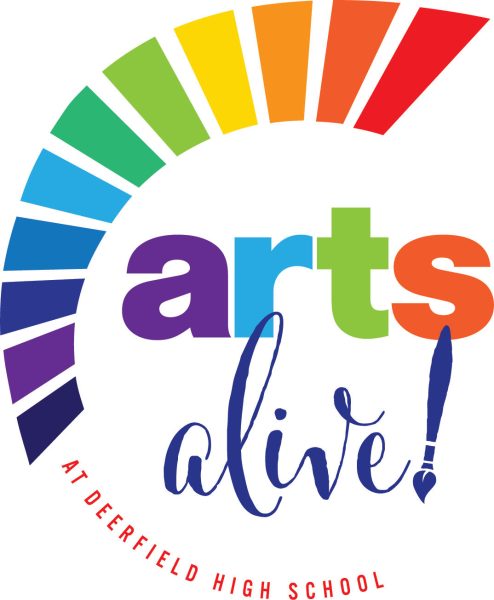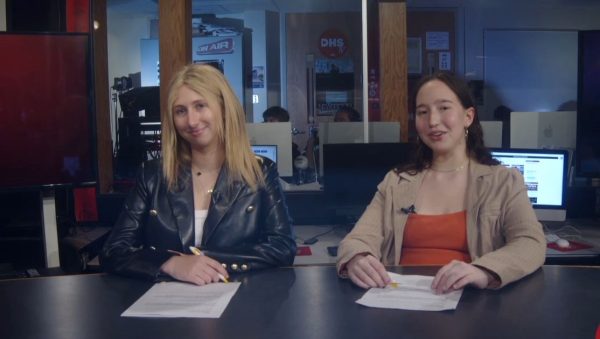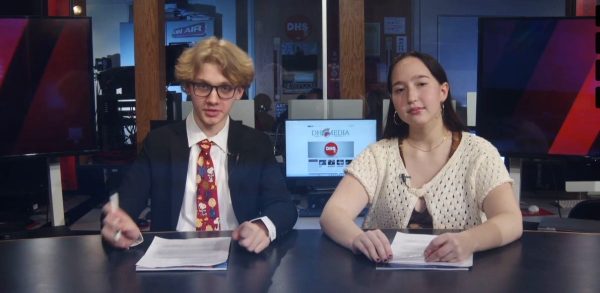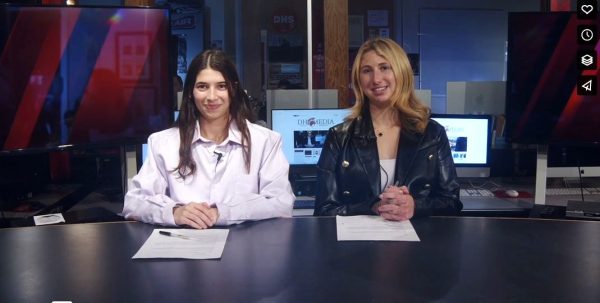DHS alumni change their college majors
According the National Center for Education Statistics, about 80 percent of students in the United States change their major at least once during their college careers. Nearly every senior has plans for their future, and while many believe that their college major will carry them into their careers, nothing is ever set in stone. Many DHS alumni have found themselves in new majors, and even different colleges, that they could have never imagined as seniors.
Josh Simons, DHS class of 2013, attended King’s College in New York City, a small Christian liberal arts school located at the center of the financial district. Although he entered as an undeclared major, within two months Simons chose Film as his focus of study. Simons, as a former reporter for WDHS, had some experience with film. However, he quickly found out the school was not what he wanted.
“I was kind of frustrated with the program,” Simons said. “It wasn’t really what I expected it to be. I didn’t have quite as many opportunities to do what I wanted to do. that, combined with frustration in general with how difficult the course work was mad me just reconsider what I wanted to do.”
Simons was also surprised by the heavy amounts of Christian doctrine he found at King’s College. He considered himself to be a “rule breaker” and often felt ostracized by the conservative faculty and students. At the end of Simon’s freshman year he decided to make some sort of change but didn’t know exactly what he wanted to. He chose to move back home in order to enroll into CLC for the 2013-2014 school year. He officially enrolled himself into computer programming. He saw computer science as a more practical major than film.
“College is super expensive and CLC is relatively cheap. I thought, ‘I don’t know what I want to do. This film thing did not work out the way I wanted it to, so I’m going to try studying something else and we’ll see what happens.’ I wanted to do that in a place where I wasn’t spending too much money. I could take classes and see what fit,” Simons said.
By winter break, Simons decided that he wasn’t really “digging the whole do math everyday thing.” He decided to change his major again to English. Simons is currently enrolled in C.L.C. as an English major, but he expects to transfer into Trinity College after he gets his associates degree at the end of this summer.
Some college readjustments don’t involve the messiness of moving states. Some of them are as simple as moving from one area of focus to another. Such was the case for Matthew Dlugie, an Evans Scholarship Recipient, which is a scholarship in full tuition for exemplary caddies, who graduated in 2012. Dlugie chose to go to Indiana University to study education. As a college freshman, he decided to open himself up to all the extracurricular possibilities college has to offer.
“I made it a goal of mine in college to say, ‘you know what, hey, I’m going to do something out of the norm and I’m going to do something I want to do,’” Dlugie said. “I came into Indiana, I looked through all the clubs, I joined the Indiana radio station because they said they talk about sports, and I like to talk about sports.”
Dlugie soon found that his passion for sports communication and marketing greatly outweighed his interest in teaching. He also discovered that some of his classmates on the radio station were enrolled as majors in Sports Marketing and Communication, an area of study he never considered when he applied for schools. By the end of his freshman year, Dlugie changed from education into a major in sports communication with a minor in sports marketing.
“It’s pretty safe to say my life’s changed dramatically since I changed my major,” Dlugie said. “I enjoy every single minute of the classes I’m in. I enjoy the fact I get to talk about sports and research sports and be involved in sports. It’s improving my ability to get my job in the future.”
As a junior, Dlugie has also found many opportunities through his involvement in Indiana’s sports radio station. He was able to call the Big Ten Indianapolis Basketball game, he volunteered to work on the Final Four in Indianapolis, he got an internship with Chicago Bears over the 2014 summer, and got to meet many top leaders in the sports world.
Dlugie had the luxury of changing to an existing major. However, there are those rare instances in which a student switches into a major that hasn’t yet been developed. That was the case of David Agnes, a 2014 DHS graduate who entered the University of Illinois school of education with the intention of becoming a high school math teacher. However, by the end of his first semester, he discovered that becoming a high school math teacher was much more difficult than he expected.
“This semester I was enrolled in Math 416 which is Abstract Linear Algebra and I’d been struggling along with some of my classmates,” Agnes said. “It came time for the first mid-term and I sat down in class, and my professor handed me the midterm, and I looked at it and I knew there was no way I could do it. Maybe five minutes in I was like, ‘I’m done, I can’t do this.’ So I got up and I handed in my test, and I told the professor I was going to drop. And then I went to talk to my advisor about switching majors.”
Agnes wasn’t interested in continuing with high school math, but he felt that teaching was still the right career for him. Agnes now plans to train to be a middle school math teacher. However, he’s run into a bit of a problem.
“Technically, I haven’t switched yet but I’m in the process of going from high school math to probably some sort of middle school education. It’s not that big of a switch in terms of what I will actually be doing. But the middle school education major doesn’t actually exist at U of I yet.
Agnes will switch into elementary education until the middle school major is ready. He believes this will major will be created in “a year or so.” Agnes plans to enter into his sophomore year as one of Illinois’s first middle school majors. He hopes that his new career focus will allow for more approachable school work.
Agnes changed his major relatively early in his college career. However, some graduates don’t even wait until a mid term to change their majors. Danielle Gluckman, another graduate of 2014, planned to enter Eckhart College in St. Petersburg with a major in Marine Science. Eckhart College allows their students to spend their first three weeks exploring the classes of their proposed major. They hope this will show students what their major is actually about. Gluckman looked into the Marine Science major, but quickly learned that she would have a to take a lot of prerequisites that didn’t excite her.
“I wouldn’t be able to take Marine Science, I would have to take Chemistry, I would have to do a basic Physics Course and a lot of math. That wasn’t really what I was interested in,” Gluckman said.
Gluckman found that she was posed with a major that didn’t follow with her true passions. She had always been interested in visual arts throughout high school, spending much of her time on Stage Crew and her personal drawing. She decided to switch from focusing on the sciences to her true love, the arts. She changed her major to visual arts in the hope that she could someday become an art teacher.
“I just felt that this is where I’m meant to be. I don’t really want to be in the science program. I want to be doing art. Education is one of the greatest ways to do that because there’s always a need for teachers, educators, and I’ve worked with children before and just think that’s something that I need to do.” Gluckman said.
Although Gluckman’s change of heart seems sudden, some graduates actually change majors and schools before they even start attending their intended college. Steven DeRose, a 2014 graduate, was all set to enter Bellmont University in Nashville with a major in Music Composition. He had a roommate set up, his classes picked out, it looked like he had his next four years planned out. However, that all changed during pre-orientation.
The more I kind of looked at it, everyone was kind of fake,” DeRose said. “Everyone was pretty good at what they did. You could tell they were just all trying to be other people. Everyone was just kind of set on being famous and that mentality. The more I thought about it, the more i wanted to study philosophy, and I wasn’t happy with Bellmont’s philosophy program.”
DeRose’s disappointment with the culture he found at Bellmont during his pre-orientation inspired him to make a massive change. Two weeks before he started at Bellmont, DeRose sat down with his parents and told them that he didn’t want to go to Bellmont. Instead, DeRose wanted to travel around America and give himself “time to think about everything.”
DeRose wasn’t sure what college he was going to enter after he left DHS. He left his choice behind and started over. He decided that “philosophy was the righteous path” and started searching through his other acceptance to find the college that offered the best philosophy program. He decided to enter Marquette University in Milwaukee, the school his older sister attended. He entered the second semester of the Marquette school year.
All of these former students advised seniors to understand that the end of their senior year doesn’t necessarily propel them into a set course. They said that students should keep an open mind, because your true path might not even be known to you yet. After all, any one of the current DHS seniors could find themselves surrounded by new choices, options and disappointments. There are a million reasons to change your major. You might find the culture of your courses unapproachable, like DeRose, Agnes and Simons. You might reconnect with an old passion, like Gluckman. You might even find a brand new passion, like Dlugie. Whatever the reason, it seems that change is inevitable.
Your major will change and it’s not something you have to continuously think about as something that has to stay the same,” Gluckman said. “It doesn’t have to be what you were interested in in high school. It doesn’t have to be anything you’ve ever done before. Take as many classes out of your interest as possible. Do things you would not have normally done before. Broaden your horizons. You will find that one thing that you are so passionate about that you have to go into.”


